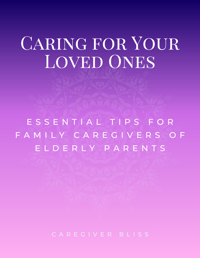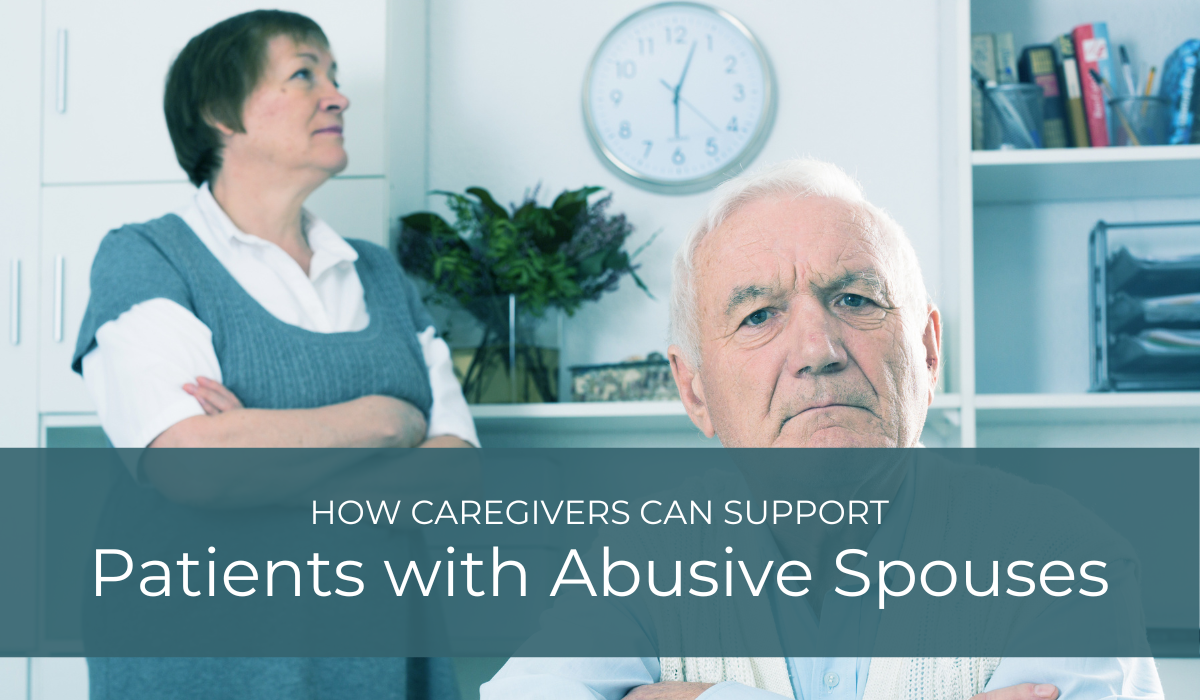Being a caregiver is a demanding but rewarding job. You are entrusted with the health and well-being of someone who may not be able to care for themselves. However, caregiving can become even more challenging when you have to deal with a situation where a patient's spouse is abusive.
In this article, we'll discuss how caregivers should handle their patient’s abusive spouses and ensure the safety and well-being of their patients.
Recognize the Signs of Abuse
The first step in handling an abusive spouse is to recognize the signs of abuse. Abuse can be physical, emotional, or even financial. Look out for any unexplained injuries, changes in behavior, fear or anxiety in your patient, or any indications that their spouse is controlling or isolating them.
Ensure the Safety of Your Patient
The safety of your patient should be your top priority. If you believe that your patient is in immediate danger, contact the appropriate authorities or an abuse hotline. Your patient's safety is paramount, and you should take any necessary steps to protect them from harm.
Offer Emotional Support
Abuse can be incredibly traumatizing, and your patient may need emotional support. Listen to them without judgment, and let them know that you are there to help and support them. Encourage them to talk about their feelings and concerns.
Maintain Professionalism
As a caregiver, it's essential to maintain professionalism in all situations. While it can be emotionally challenging to deal with an abusive spouse, it's crucial to stay calm and composed. Your role is to provide care, not to confront or engage in conflict with the abusive spouse.
Document Incidents
Documenting incidents of abuse is essential. Keep a record of any injuries, behavioral changes, or conversations related to the abusive spouse. This documentation can be crucial if legal action or intervention is required.
Communicate with Your Patient's Healthcare Team
Your patient's healthcare team should be informed about the situation. They can provide guidance on how best to support your patient's physical and mental health needs. Additionally, they may have resources and connections to experts who can assist in addressing abuse issues.
Encourage Your Patient to Seek Help
If your patient is willing and able, encourage them to seek help. This might include reaching out to a counselor, therapist, or support group for victims of abuse. Offer to assist in finding resources or making necessary appointments.
Legal and Social Services
In some cases, legal and social services may need to be involved to ensure your patient's safety. Consult with professionals who specialize in domestic abuse cases to understand the legal options available and how to proceed.
Maintain Boundaries
It's essential to maintain professional boundaries with your patient's abusive spouse. Do not attempt to confront or mediate conflicts between them, as this can escalate the situation. Instead, focus on providing the best care possible to your patient.
Conclusion
Handling an abusive spouse as a caregiver is a complex and sensitive situation. Your primary responsibility is the safety and well-being of your patient. By recognizing the signs of abuse, offering emotional support, maintaining professionalism, and collaborating with healthcare professionals, you can provide the best care and assistance to help your patient through this challenging time. Remember, your compassion and commitment can make a significant difference in the lives of those who are suffering from abuse.
We hope you found our article on how caregivers can support patients with abusive spouses insightful and informative. Now, we'd love to hear from you. Have you ever encountered a similar situation as a caregiver or as a concerned friend or family member? Please share your experiences, thoughts, or questions in the comments below. Your insights and stories can contribute to a meaningful discussion on this important topic.
Free Guide:
Caring For Your Loved Ones
 Attention family caregivers! Are you struggling to provide the best care for your aging parents? Don't worry, we've got you covered.
Attention family caregivers! Are you struggling to provide the best care for your aging parents? Don't worry, we've got you covered.
Download our free guide, Caring for Your Loved Ones: 10 Essential Tips for Family Caregivers of Elderly Parents, and unlock the secrets to becoming an exceptional caregiver.
From adapting the home environment to promoting independence, this invaluable resource will transform your caregiving experience into a more rewarding journey. Don't wait—give your loved ones the care they deserve, and download your free copy today!

